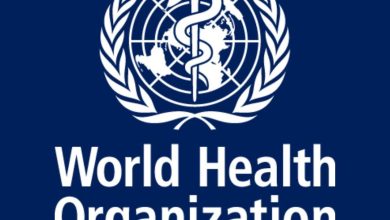Loneliness Emerging as a Silent Global Killer, WHO Report Warns
Loneliness now claims over 871,000 lives yearly, WHO calls it a silent global health threat.
New report links isolation to deadly conditions, urging urgent policy-level social solutions.
A new report by the World Health Organization (WHO) has sounded the alarm on a growing and often overlooked health crisis loneliness. According to the global health body, loneliness is now responsible for over 871,000 deaths each year, translating to an average of about 100 lives lost every hour. The revelation has sparked urgent calls for governments and public health institutions to treat social disconnection as a major public health threat.
The report, released by the WHO Commission on Social Connection, outlines the profound and far-reaching consequences of loneliness and social isolation, extending well beyond emotional pain. The findings show that individuals who experience chronic loneliness face significantly increased risks of numerous physical and mental health conditions, including strokes, cardiovascular disease, type 2 diabetes, depression, anxiety, and even suicide.
The report notes that loneliness has become a universal issue, affecting populations across all age groups and regions. However, certain groups appear to be more vulnerable than others. Adolescents and young adults, particularly those between the ages of 13 and 29, are among the most affected, with an estimated 17 to 21 percent of this demographic reporting persistent feelings of loneliness. Teenagers are especially at risk, a trend attributed to factors such as social media pressures, academic stress, and reduced face-to-face interaction.
People living in low-income countries also face heightened risks, as many lack access to adequate social infrastructure, mental health services, or safe communal spaces that could support social interaction. This underscores the unequal burden of loneliness and highlights the role that socioeconomic conditions play in shaping individual well-being.
Speaking on the findings, WHO Director-General Dr. Tedros Adhanom Ghebreyesus urged world leaders to recognize social connection as a key determinant of health and development. “Human connection is a fundamental need, just like food and water. When people lack social bonds, their health suffers. The time has come for loneliness to be addressed with the same urgency as other major public health issues,” Dr. Tedros stated.
To combat the crisis, the WHO Commission is advocating for the integration of social connection strategies into national policies, particularly in sectors such as health care, education, urban planning, and economic development. The commission argues that loneliness is not merely a personal issue but a systemic one that demands coordinated, cross-sectoral responses.
Encouragingly, the report highlights Sweden as a model for effective national action. The Scandinavian country has developed a comprehensive strategy to reduce loneliness and foster stronger social ties. Among the measures introduced are prepaid leisure cards for young people, designed to facilitate access to recreational activities, as well as initiatives to enhance community engagement in public spaces. Sweden’s proactive approach serves as a case study in how targeted interventions can yield tangible benefits in combating social isolation.
Ultimately, the WHO’s latest findings serve as a wake-up call for the global community. Left unaddressed, the loneliness epidemic threatens not only individual health but also broader societal resilience. With evidence now clearly linking loneliness to mortality and disease, the need for global action is more urgent than ever.



